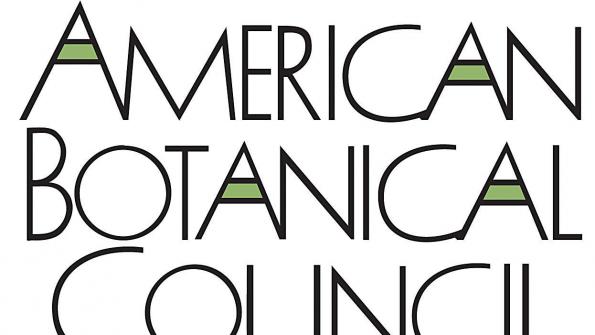IADSA backs the ABC-AHP-NCNPR program, which advises industry, health professionals and researchers about challenges related to adulterated herb and botanical ingredients sold in commerce.
September 9, 2014

The International Alliance of Dietary/Food Supplement Associations (IADSA) has endorsed the ABC-AHP-NCNPR Botanical Adulterants Program, an international consortium of nonprofit organizations, analytical laboratories, industry members, professional scientists, and others that advises industry, health professionals, and researchers about the various challenges related to adulterated herb and botanical ingredients sold in commerce.
IADSA, an international organization of trade associations composed of suppliers and manufacturers of dietary supplements, gave notice of its support in a letter dated Aug. 3 from IADSA Executive Director Simon Pettman to Mark Blumenthal, founder and executive director of the nonprofit American Botanical Council (ABC) and general manager of the ABC-AHP-NCNPR Botanical Adulterants Program. In the letter, Pettman said of the decision, “IADSA is constantly seeking ways in which to improve standards within the global industry and demonstrate that dietary supplements are a category of products that deserve the trust of decision-makers in government. We consider that your program will help us move forward on both these objectives and in time will provide real consumer benefits.”
According to its website, IADSA has 48 member associations, representing thousands of companies worldwide.
Adulteration refers to the accidental or intentional substitution or dilution of a material with an undisclosed lower-cost ingredient, thereby giving the consumer or user a false sense of the value of an ingredient or product containing such an adulterated ingredient.
The ABC-AHP-NCNPR Botanical Adulterants Program is a coalition of three American nonprofit groups: ABC, theAmerican Herbal Pharmacopoeia (AHP), and the University of Mississippi’s National Center for Natural Products Research (NCNPR), with more than 130 other American and international parties supporting and cooperating with the Program.
“The endorsement of our Program by IADSA signifies not only the global nature of the problem of adulteration in the botanical supply chain, but also represents the concerns of many responsible, forward-thinking members of the herb and dietary supplement industry in 33 countries regarding this significant problem, and their confidence in and cooperation with the educational work we are doing,” said ABC’s Blumenthal. “IADSA’s involvement constitutes a quantum leap in the Program’s level of activity,” he added.
“IADSA supports this excellent program to bring safe and authenticated botanicals to consumers globally,” said Peter Zambetti, chairman emeritus of IADSA and director of global business development at Capsugel, the world’s largest manufacturer of gelatin capsules used in the manufacture of dietary supplements and pharmaceuticals.
“IADSA’s endorsement of this Program is a significant development for us, and helps to ensure that we have the prospect of success on an international basis, connecting organizations pursuing similar aims,” said Stefan Gafner, PhD, ABC’s chief science officer and technical director of the Botanical Adulterants Program. “We look forward to working with more botanical quality control experts from other organizations and scientists in the international arena,” he added.
According to Michelle Stout, treasurer of IADSA and regulatory policy director at Amway, one of the world’s largest producers of dietary supplements, “Authenticity of a botanical impacts its quality which directly impacts its efficacy and safety. The ABC-AHP-NCNPR Botanical Adulterants Program is an important initiative for building standards to ensure that the botanicals used in supplements are authentic and free from any deliberate or accidental adulteration.”
IADSA’s endorsement of the ABC-AHP-NCNPR Botanical Adulterants Program follows similar endorsements made last year by the international Society for Medicinal Plant and Natural Product Research (known by its German acronym, GA) and the American Society of Pharmacognosy (ASP). The GA and ASP are the two largest organizations of professional researchers in the field of medicinal plants and drugs of natural origin.
To date, the ABC-AHP-NCNPR Botanical Adulterants Program has published five extensively peer-reviewed and referenced articles on the history of adulteration, the adulteration of the herbs black cohosh and skullcap, and adulteration of extracts of bilberry fruit and grapefruit seed. These open-access articles are available on the Program’s webpage: herbalgram.org/adulterants. The Program also publishes a quarterly newsletter, "The Botanical Adulterants Monitor" that highlights new scientific publications related to botanical authenticity and analysis to detect possible adulteration, recent regulatory actions, and Program news. Additional publications from the Program are being scheduled for release in the coming weeks and months.
You May Also Like


